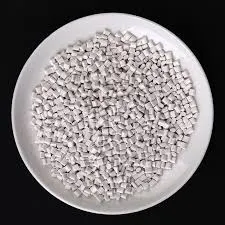Chemicals Used for Boiler Water Treatment Ensuring Efficiency and Longevity
Boilers play an essential role in various industrial processes by generating steam or hot water for heating, power generation, and other applications. However, the efficiency and longevity of a boiler system heavily depend on its water quality. Consequently, water treatment is critical to prevent issues like scaling, corrosion, and deposition that can reduce operational efficiency and lead to costly repairs. This article provides an overview of the key chemicals used for boiler water treatment and their functions.
1. Oxygen Scavengers
One of the primary concerns in boiler water treatment is oxygen, which can cause serious corrosion of metal components. Oxygen enters the boiler via feedwater and can lead to pitting corrosion and system failures if not adequately addressed. To combat this, oxygen scavengers such as sodium sulfite, hydrazine, or DEHA (diethylhydroxylamine) are used. These chemicals react with dissolved oxygen, effectively removing it from the water and thus protecting the boiler system.
Scale formation is another significant challenge in boiler operations, occurring when minerals precipitate out of the water due to temperature and pressure variations. Common scale-forming materials include calcium carbonate, calcium sulfate, and magnesium silicate. To prevent scaling, treatment programs often incorporate scale inhibitors such as polyacrylic acid, phosphonates, or chelating agents. These compounds work by interfering with the crystallization process, thereby keeping minerals in a dissolved state and preventing them from settling on surfaces.
3. Corrosion Inhibitors
Apart from oxygen scavengers, additional corrosion inhibitors may be employed to enhance the protection of metal surfaces inside the boiler. These inhibitors can include amines, which create a protective film on metal surfaces, or compounds such as molybdates or phosphates that mitigate the corrosive effects of water chemistry. The selection of a corrosion inhibitor is critical, as it must be compatible with other treatment chemicals and not adversely affect water quality.
chemicals used for boiler water treatment

4. pH Adjusters
Maintaining an optimal pH level in boiler water is crucial for minimizing both corrosion and scaling. A pH that is too low can accelerate corrosion rates, while a high pH can promote the formation of deposits. Commonly used pH adjusters include sodium hydroxide and sodium bicarbonate, which can either raise or lower the pH, as needed. Monitoring and adjusting pH are essential parts of boiler water treatment, ensuring that the water remains within the ideal range for both operational efficiency and equipment lifespan.
5. Dispersants
Dispersants are used to keep particulate matter suspended in the water, preventing it from settling and forming sludge. This is particularly important in systems where impurities might accumulate. Polymers, such as polyacrylate or organophosphates, are often employed as dispersants. By ensuring that particulates remain in suspension, these chemicals help maintain system cleanliness and reduce the potential for fouling and other operational issues.
6. Biocides
In some boiler systems, particularly those that utilize open cooling water systems, microbial growth can pose a significant threat. Biofilms can develop on heating surfaces, leading to insulation and reduced heat transfer efficiency. To control microbial growth, biocides such as sodium hypochlorite or isothiazolinone are introduced. These chemicals effectively kill bacteria, algae, and fungi, contributing to the overall health of the boiler system.
Conclusion
Effective boiler water treatment is a multifaceted process that relies on a variety of chemicals to address the unique challenges posed by water quality. By using oxygen scavengers, scale and corrosion inhibitors, pH adjusters, dispersants, and biocides, operators can significantly enhance the efficiency, reliability, and lifespan of their boiler systems. Regular monitoring and adjustments, coupled with the right chemical treatment strategies, are essential for optimizing performance and minimizing maintenance costs. As industries continue to seek more sustainable and efficient operations, effective boiler water treatment remains a cornerstone of successful boiler management.

